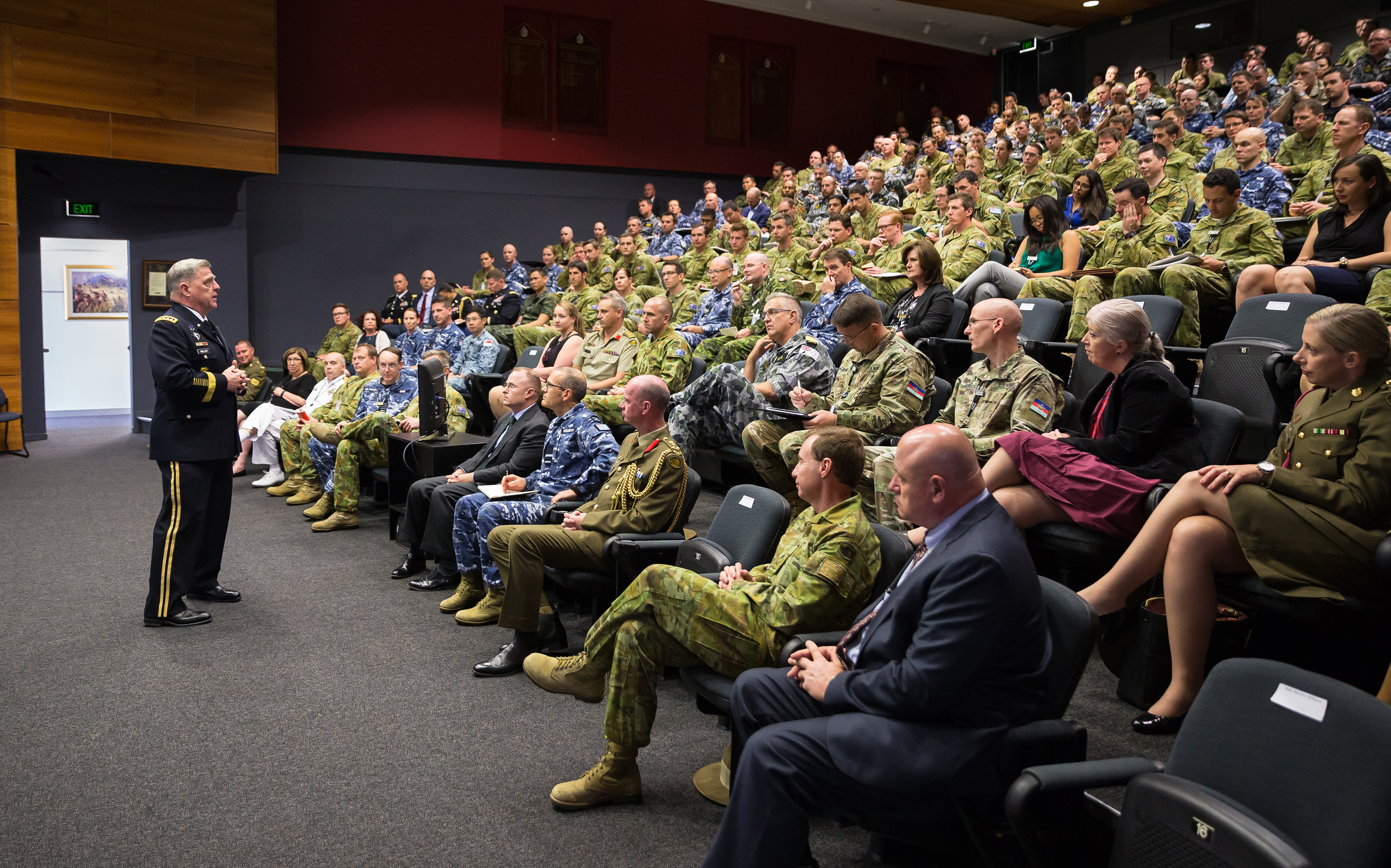Recently I attended an operations course in which every instructor provided a warning that our education in planning and fighting against a near-peer advisory was lacking. As the final exercise approached, I was excited to be challenged with a training scenario of epic scale. Were we going to be challenged with planning a major invasion such as Operation Overlord or repelling a massive attack in the Fulda Gap? The answer was no. The final training exercise was a natural disaster relief mission. I found myself pondering what was more tragic, the death of 10,000 displaced individuals if the military responded poorly to a disaster relief mission or the death of millions that would be likely occur if the military failed to prepare for another 'major' war. After asking the instructor about why we didn’t focus more on a large-scale combat mission, I got a vague answer about delays caused by the approval process to modify the course and building a new training scenario.
It is in moments like this, that I truly appreciate the rise of independent producers of Professional Military Education (PME). Sources like The Cove, From the Green Notebook, the Army Leader (UK), The Company Leader, Medical Service Corps Leader Development, the Small Wars Journal, and literally dozens of other individual PME producers are leveraging social media to overcome the problem associated with education and credentialing in our formal schoolhouses. As our schoolhouses have shifted to mimic modern academia, there has been an increasing focus on credentialing (proving the validity and quality of the course). While this in itself isn’t a bad thing, it requires time and lots of it. As we are being sent to military schools, it isn’t that our organisations want us to spend some time in an educational environment, they want use to bring back a piece of paper (certificate/diploma) to 'prove' we learned something. The focus on credentialing in our military educational institutions might be destroying the flexibility and adaptability within these organisations. With credentialing processes often taking months, if not years, it is hardly a process that speaks of 'instant' innovation to keep up with the demands of the modern battlefield. The good news is that the rise of the independent producers of PME might be the solution to 'fill the gap' between the credentialed 'official' military training and the educational opportunities that soldiers really need.

One of the reasons for the success of independent producers of PME is that they operate within a capitalist model that forces them to tailor their materials and educational approaches to their audience. Unlike our formal military institutions that can 'force' soldiers to read their articles during formal PME courses or depend upon their prestige, independent producers must present their products in an enjoyable and entertaining fashion. These independent producers must demonstrate the value of their materials or they will be outcompeted by those that do. These often mean short and concise articles or entertaining videos. The great news here is once the independent producers find and demonstrate the value of the best educational techniques, they are often copied by our formal military institutions. In this way, these independent producers are acting like the vanguard for the future of military education.
One of the biggest advantages of the independent producers of PME is their speed and scope. I learned this from personal experience. After spending years writing a dissertation on the topic of U.S. Army Self-Development, I was excited to submit my research for publication in the journal of the two major U.S. Army schoolhouses. In both cases, I spent months waiting for a reply, only to be directed elsewhere as the research did not fit the 'scope' of the journal. I went on to try to publish in a Canadian journal only to wait close to a year to be told they could not find suitable individuals for the peer-review process. Knowing that this was valuable research, I wanted to get it in front of soldiers. It took me less than a month to get the article published through an independent producer and in front of the right audience. I went on to establish The Evolving Warfighter YouTube channel to further push out my research in an easily accessible format. With the speed of publication offered by independent producers and the highly motivated audiences they attract, I personally feel like they are the superior route to get your thoughts 'out to the field'.
In the end, the military institutions will have to address the gap that occurs between the requirements of credentialed educational courses and the rapid educational experience needed to keep up with the daily fight on the modern battlefield. Until then, I encourage you to engage with independent producers of PME. Read their articles, watch their videos, and even dare to contribute materials on the most pressing issues of the day. I can almost guarantee that those that do engage with these unofficial sources will position themselves to outcompete their peers. While these independent producers might not always have the right or accepted doctrinal answers, they will get you thinking about the problems you are likely to encounter on the battlefield. Military leaders can ill afford to restrict their education to traditional structured classroom environments. It is time to embrace adaptability and drive innovation through the process of continuous self-directed learning.









